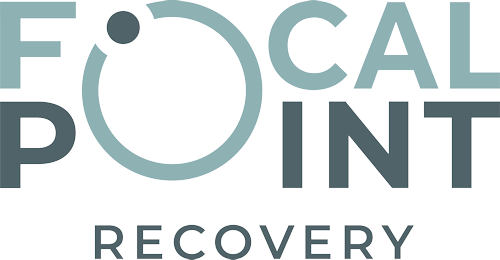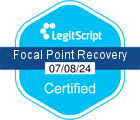Residential Drug & Alcohol Addiction Treatment in Huntington Beach, CA
Starting treatment can seem intimidating, especially for those with severe addictions. Our inpatient treatment offers a chance to step away from daily life and focus solely on recovery. This option provides a safe space for detoxification under medical supervision, followed by immediate access to therapeutic support. With round-the-clock care, those concerned about the risk of relapse can find reassurance and support in our structured environment.


How Does Residential Addiction Treatment Work?
While each inpatient program is unique, there are a few common treatment aspects:

Separation From Daily Life
The biggest difference between residential drug rehab and other forms is the fact that patients live full-time at the facility. There is limited communication with the outside world, except for select days or for therapeutic services like family therapy. This is meant to encourage reflection and building up skills that patients can bring into their daily lives.

Safe and Observed Medical Detox
Inpatient treatment is ideal for people with more intensive addictions, because it allows them to be under medical observation at the crucial beginning of their treatment. The initial medical detox at the beginning of treatment can coordinate perfectly with the rest of their treatment and can coordinate with necessary check-ups as necessary. They’re not expected to hold down a job or maintain responsibilities, and can receive medical care as soon as they need it.

Regular Therapy and Services
In inpatient treatment, there’s a lot of access to services to help in supporting people in recovery. Therapy will be a regular part of the routine, both individual and in a group setting. But people in residential drug rehab will also have the opportunity to try out different types of specialized therapy, from cognitive-behavioral therapy (CBT) to specialized trauma therapy.
Therapy in Residential Drug & Alcohol Addiction Treatment in Huntington Beach, CA
A major advantage of working within the residential treatment system is consistent access to medical assistance. For people experiencing withdrawal, MAT programs supply them with medication to keep the symptoms at a manageable level. This allows them to focus fully on their recovery.
This therapy is a common favorite among people who aren’t fans of traditional talk therapy, and has proven to be very effective in treating addiction. This form of therapy teaches people to analyze the cycle of thoughts, beliefs, and actions that may influence their desire to take drugs. By becoming aware and taking control of the cycle, they can stop their pattern of use and work to create healthier patterns of behavior.
DBT places an emphasis on mindfulness, and helps the individual undergoing therapy to learn coping skills for stressful situations. Distress tolerance and interpersonal skills are taught so that the person doesn’t need to turn to substances to help manage their emotions.
Many people turn to addictive substances out of a feeling of hopelessness. Motivational interviewing is designed to help people realize their own potential for change and retake some of that control. This type of therapy also puts a focus on helping people work through their ambivalent feelings, enabling them to come to their own conclusions.
Much more direct than most types of therapy, contingency management focuses on providing exact rewards for hitting certain benchmarks of sobriety, such as remaining sober for a certain amount of time. Addiction hijacks the reward center of the brain, and sabotages the chemicals within the brain associated with rewards. Contingency management works as a tool to help rewire the addicted person’s brain and behaviors so they can unlearn this aspect of addiction.
Many people carry trauma in their lives, and many people cope with it by taking on addictive behaviors. Therapy that focuses exclusively on trauma can help people unpack the effects that traumatic events have had on themselves and their actions. By learning to copy with trauma without addictive substances, people are empowered to make change despite the negative events and work toward a happier future.
Contact Focal Point Recovery for Residential Drug & Alcohol Addiction Treatment in Huntington Beach, CA
FAQs About Residential Addiction Treatment in Huntington Beach, CA
How long does residential drug & alcohol addiction treatment in Huntington Beach, CA last?
The length of residential drug treatment in Huntington Beach varies based on individual needs but typically ranges from 30 to 90 days. Extended care options may also be available.
Can family visit during residential drug & alcohol addiction treatment?
Yes, family visits are encouraged, as involving loved ones can play a crucial role in the recovery process. At Focal Point’s residential drug treatment in Huntington Beach, we’ll provide details on visiting hours upon admission.
Can I continue working or studying during residential drug & alcohol addiction treatment?
At Focal Point Recovery, our program for residential alcohol treatment in Huntington Beach requires your full commitment to the healing process, making it difficult to continue work or study. However, we can discuss your specific needs to find the best solution.
Is aftercare support available?
Yes, after completing residential drug treatment in Huntington Beach, we provide aftercare support to help you maintain long-term recovery. This might include continued therapy, support groups, or outpatient programs.
How much does residential drug & alcohol addiction treatment in Huntington Beach, CA cost?
The cost varies based on your treatment plan. We accept insurance plans and offer flexible payment options to make treatment accessible. Contact our team today to discuss your insurance coverage and benefits.

